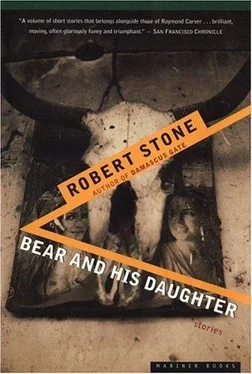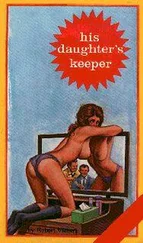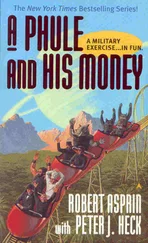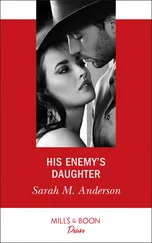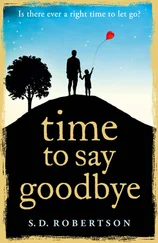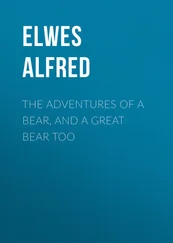“Yes,” Anderson said.
“That’s so often true, isn’t it?” Elliot asked. “Values are often relative.”
“Yes,” Anderson said. Elliot was relieved to see that he had stopped smiling.
“I’ve hardly slept, you know,” Elliot told Professor Anderson. “Hardly at all. All night. I’ve been drinking.”
“Oh,” Anderson said. He licked his lips in the mouth of the mask. “You should get some rest.”
“You’re right,” Elliot said.
“Well,” Anderson said, “got to go now.”
Elliot thought he sounded a little thick in the tongue. A little slow in the jaw.
“It’s a nice day,” Elliot said, wanting now to be agreeable.
“It’s great,” Anderson said, shuffling on his skis.
“Have a nice day,” Elliot said.
“Yes,” Anderson said, and pushed off.
Elliot rested the shotgun across his shoulders and watched Anderson withdraw through the frozen swamp. It was in fact a nice day, but Elliot took no comfort in the weather. He missed night and the falling snow.
As he walked back toward his house, he realized that now there would be whole days to get through, running before the antic energy of whiskey. The whiskey would drive him until he dropped. He shook his head in regret. “It’s a revolution,” he said aloud. He imagined himself talking to his wife.
Getting drunk was an insurrection, a revolution — a bad one. There would be outsize bogus emotions. There would be petty moral blackmail and cheap remorse. He had said dreadful things to his wife. He had bullied Anderson with his violence and unhappiness, and Anderson would not forgive him. There would be damn little justice and no mercy.
Nearly to the house, he was startled by the desperate feathered drumming of a pheasant’s rush. He froze, and out of instinct brought the gun up in the direction of the sound. When he saw the bird break from its cover and take wing, he tracked it, took a breath and fired once. The bird was a little flash of opulent color against the bright blue sky. Elliot felt himself flying for a moment. The shot missed.
Lowering the gun, he remembered the deer shells he had loaded. A hit with the concentrated shot would have pulverized the bird, and he was glad he had missed. He wished no harm to any creature. Then he thought of himself wishing no harm to any creature and began to feel fond and sorry for himself. As soon as he grew aware of the emotion he was indulging, he suppressed it. Pissing and moaning, mourning and weeping, that was the nature of the drug.
The shot echoed from the distant hills. Smoke hung in the air. He turned and looked behind him and saw, far away across the pasture, the tiny blue and red figure of Professor Anderson motionless against the snow. Then Elliot turned again toward his house and took a few labored steps and looked up to see his wife at the bedroom window. She stood perfectly still, and the morning sun lit her nakedness. He stopped where he was. She had heard the shot and run to the window. What had she thought to see? Burnt rags and blood on the snow. How relieved was she now? How disappointed?
Elliot thought he could feel his wife trembling at the window. She was hugging herself. Her hands clasped her shoulders. Elliot took his snow goggles off and shaded his eyes with his hand. He stood in the field staring.
The length of the gun was between them, he thought. Somehow she had got out in front of it, to the wrong side of the wire. If he looked long enough he would find everything out there. He would find himself down the sight.
How beautiful she is, he thought. The effect was striking. The window was so clear because he had washed it himself, with vinegar. At the best of times he was a difficult, fussy man.
Elliot began to hope for forgiveness. He leaned the shotgun on his forearm and raised his left hand and waved to hen Show a hand, he thought. Please just show a hand.
He was cold, but it had got light. He wanted no more than the gesture. It seemed to him that he could build another day on it. Another day was all you needed. He raised his hand higher and waited.
ALL THE PREVIOUS DAY, they had been tacking up from the Grenadines, bound for Martinique to return the boat and take leave of Freycinet. Blessington was trying to forget the anxieties of the deal, the stink of menace, the sick ache behind the eyes. It was dreadful to have to smoke with the St. Vincentian dealers, stone killers who liked to operate from behind a thin film of fear. But the Frenchman was tough.
Off Dark Head there was a near thing with a barge under tow. Blessington, stoned at the wheel, his glass of straight Demerara beside the binnacle, had calmly watched a dimly lighted tug struggle past on a parallel course at a distance of a mile or so. The moon was newly risen, out of sight behind the island’s mountains, silvering the line of the lower slopes. A haze of starlight left the sea in darkness, black as the pit, now and then flashing phosphorescence. They were at least ten miles offshore.
With his mainsail beginning to luff, he had steered the big ketch a little farther off the wind, gliding toward the trail of living light in the tug’s wake. Only in the last second did the dime drop; he took a quick look over his shoulder. And of course there came the barge against the moon-traced mountains, a big black homicidal juggernaut, unmarked and utterly unlighted, bearing down on them. Blessington swore and spun the wheel like Ezekiel, as hard to port as it went, thinking that if his keel was over the cable nothing would save them, that 360 degrees of helm or horizon would be less than enough to escape by.
Then everything not secured came crashing down on everything else, the tables and chairs on the afterdeck went over, plates and bottles smashed, whatever was breakable immediately broke. The boat, the Sans Regret, fell off the wind like a comedian and flapped into a flying jibe. A couple of yards to starboard the big barge raced past like a silent freight train, betrayed only by the slap of its hull against the waves. It might have been no more than the wind, for all you could hear of it. When it was safely gone, the day’s fear welled up again and gagged him.
The Frenchman ran out on deck cursing and looked to the cockpit, where Blessington had the helm. His hair was cut close to his skull. He showed his teeth in the mast light. He was brushing his shorts; something had spilled in his lap.
“ Qu’est-ce que c’est là? ” he demanded of Blessington. Blessington pointed into the darkness where the barge had disappeared. The Frenchman knew only enough of the ocean to fear the people on it. “ Quel cul! ” he said savagely. “Who is it?” He was afraid of the Coast Guard and of pirates.
“We just missed being sunk by a barge. No lights. Submerged cable. It’s OK now.”
“Fuck,” said the Frenchman, Freycinet. “Why are you stopping?”
“Stopping?” It took a moment to realize that Freycinet was under the impression that because the boat had lost its forward motion they were stopping, as though he had applied a brake. Freycinet had been around boats long enough to know better. He must be out of his mind, Blessington thought.
“I’m not stopping, Honoré. We’re all right.”
“I bust my fucking ass below,” said Freycinet. “Marie fall out of bed.”
Tough shit, thought Blessington. Be thankful you’re not treading water in the splinters of your stupidly named boat. “Sorry, man,” he said.
Sans Regret, with its fatal echoes of Piaf. The Americans might be culturally deprived, Blessington thought, but surely every cutter in the Yankee Coast Guard would have the sense to board that one. And the cabin stank of the resiny ganja they had stashed, along with the blow, under the cabin sole. No amount of roach spray or air freshener could cut it. The space would probably smell of dope forever.
Читать дальше
